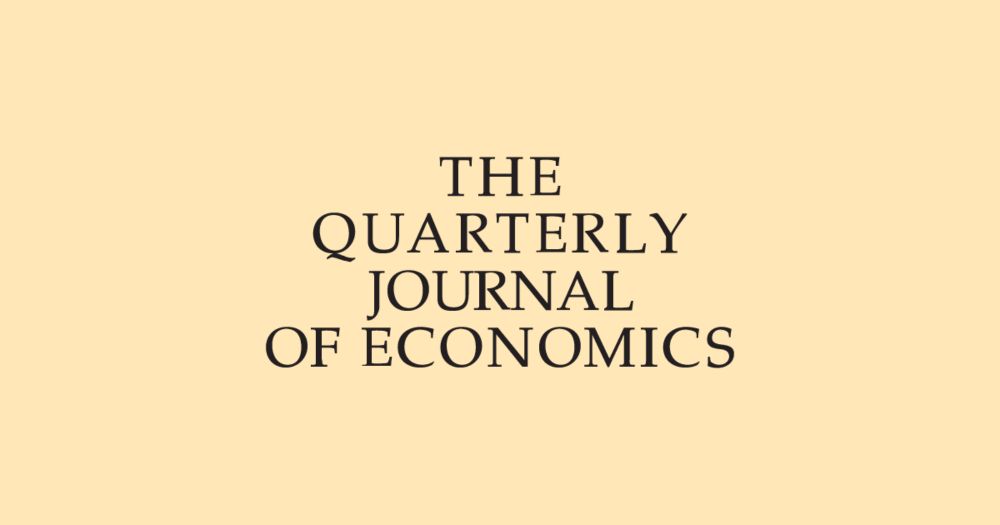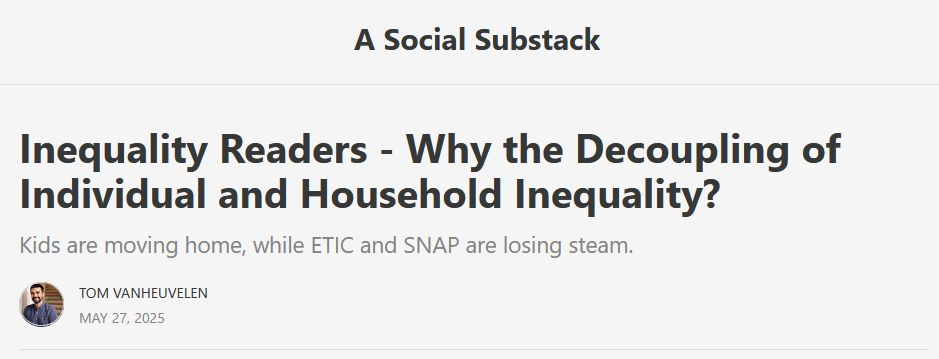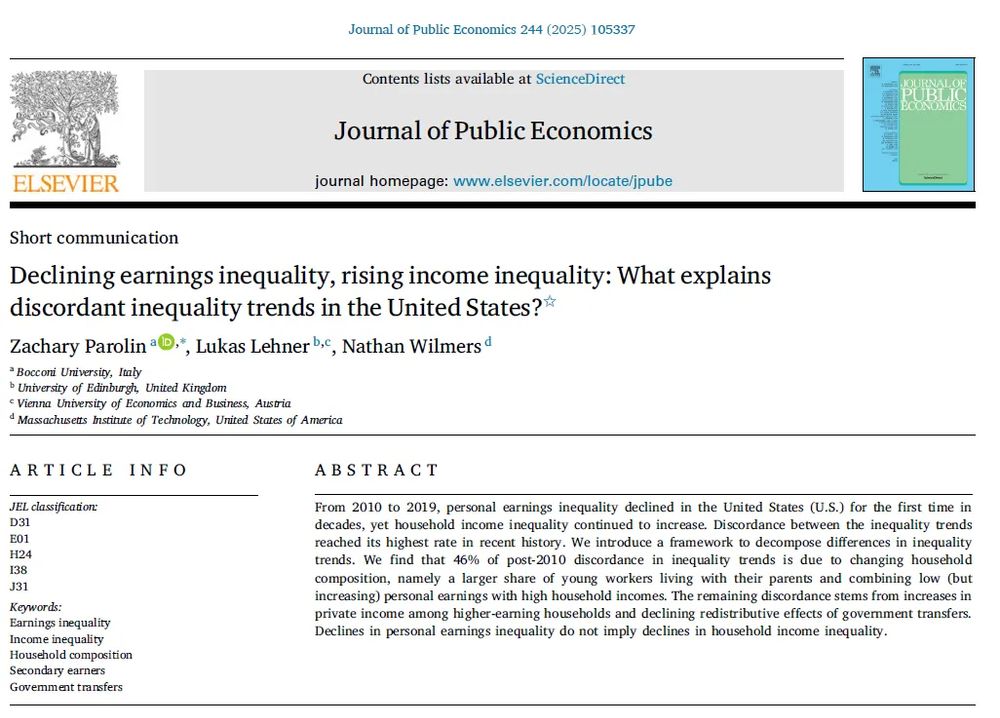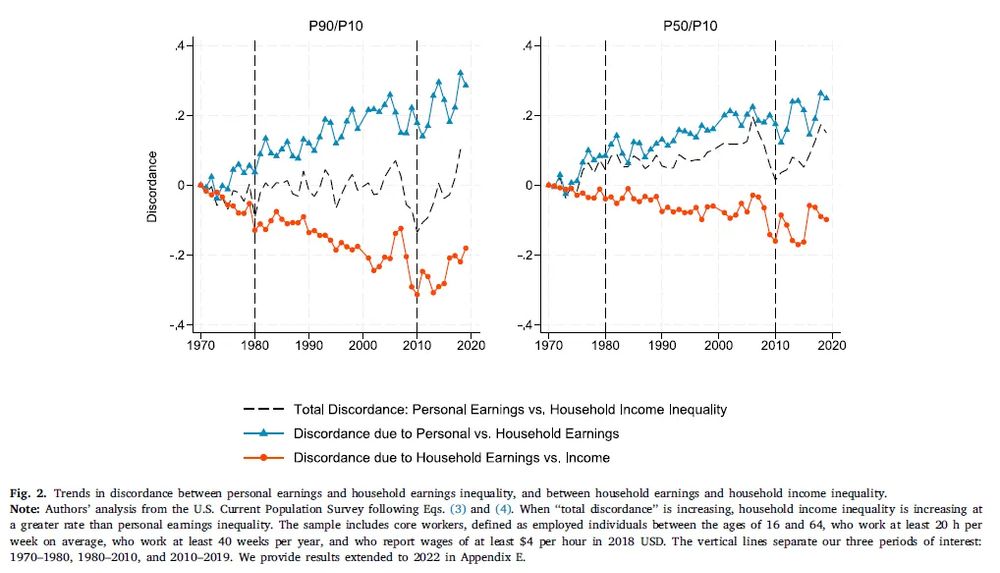
https://matthiashaslberger.github.io

Read the #OA paper: doi.org/10.1080/0140...
Quick overview below (1/5)
How does owning a home change how people feel about politics?
In this article, @mhaslberger.bsky.social and @madselk.bsky.social find that owning a home is linked to feeling more politically included, especially for older people.
🔗 doi.org/10.1080/0140...


Read the #OA paper: doi.org/10.1080/0140...
Quick overview below (1/5)

Read the #OA paper: doi.org/10.1080/0140...
Quick overview below (1/5)
Dave Hope, @lhaffert.bsky.social and I show that low taxes on the rich have a hidden cost: They undermine public support for broad-based taxation. 🖋️ cup.org/45lgPwN

Dave Hope, @lhaffert.bsky.social and I show that low taxes on the rich have a hidden cost: They undermine public support for broad-based taxation. 🖋️ cup.org/45lgPwN
This could/should be our most productive period for research, but there are only so many hours in a day...
I miss writing anything that isn’t a custom-fit job market package. Please consider standardizing the materials so I can return to the research and writing that motivates these applications.
Signed,
A tired postdoc who just finished a 12-page package and misses her work
This could/should be our most productive period for research, but there are only so many hours in a day...
This was social science at its best, thanks to all involved! @benansell.bsky.social @jburnmurdoch.ft.com @nuffieldcollege.bsky.social




Thank you @mhaslberger.bsky.social @benansell.bsky.social for the warm hospitality!
This was social science at its best, thanks to all involved! @benansell.bsky.social @jburnmurdoch.ft.com @nuffieldcollege.bsky.social




Thank you @mhaslberger.bsky.social @benansell.bsky.social for the warm hospitality!
This was social science at its best, thanks to all involved! @benansell.bsky.social @jburnmurdoch.ft.com @nuffieldcollege.bsky.social




This was social science at its best, thanks to all involved! @benansell.bsky.social @jburnmurdoch.ft.com @nuffieldcollege.bsky.social
💡 @unisg.ch has got you covered with a write-up about our recent paper in @jeppjournal.bsky.social.
www.unisg.ch/en/newsroom/...

💡 @unisg.ch has got you covered with a write-up about our recent paper in @jeppjournal.bsky.social.
www.unisg.ch/en/newsroom/...
Link: matthiashaslberger.github.io/ai/


Link: matthiashaslberger.github.io/ai/
Seeking Opportunity in the Knowledge Economy: Moving Places, Moving Politics? - https://cup.org/3LgxVos
"moving to opportunity results in... more left-leaning self-identification, and lower support for far-right parties"
- @valentinaconsiglio.bsky.social & @thmskrr.bsky.social
#OpenAccess

Seeking Opportunity in the Knowledge Economy: Moving Places, Moving Politics? - https://cup.org/3LgxVos
"moving to opportunity results in... more left-leaning self-identification, and lower support for far-right parties"
- @valentinaconsiglio.bsky.social & @thmskrr.bsky.social
#OpenAccess


This is a great team effort with @chknutsen.bsky.social, @peterla.bsky.social, @inalkristiansen.bsky.social. But many more helped us along the way 🙏
A short 🧵
This is a great team effort with @chknutsen.bsky.social, @peterla.bsky.social, @inalkristiansen.bsky.social. But many more helped us along the way 🙏
A short 🧵
Mathe -24⬇️
Bio -24⬇️
Chemie -24⬇️
Physik -23⬇️
Die neuen Ergebnisse des IQB-Bildungstrends.
Ganz grob gesprochen: 9.-Klässler:innen liegen heute etwa auf Niveau der 8.-Klässler:innen noch vor 6 Jahren.
1/3

Mathe -24⬇️
Bio -24⬇️
Chemie -24⬇️
Physik -23⬇️
Die neuen Ergebnisse des IQB-Bildungstrends.
Ganz grob gesprochen: 9.-Klässler:innen liegen heute etwa auf Niveau der 8.-Klässler:innen noch vor 6 Jahren.
1/3
The hopeful part of their message - the policies that are most likely to work, such as retraining programs, enjoy widespread popular support - is also borne out in my work on the UK.
AI is already transforming labor markets, and governments risk repeating the mistakes they made with globalization
www.foreignaffairs.com/united-state...

The hopeful part of their message - the policies that are most likely to work, such as retraining programs, enjoy widespread popular support - is also borne out in my work on the UK.
Gratitude, because the peaceful revolution of 1989 was nothing short of a miracle — a bloodless dismantling of a repressive regime.
Reflection, because the wounds of the transition still mark the country —and because
This new series of ECR blog posts on the French History Network makes for grim reading, perhaps grimmer even than some in UK #FrenchHistory might have realised.
1st post, anon ECRs in French History on what it’s like right now out there:
frenchhistorysociety.co.uk/6691/
🗃️
We're living in a novel era of inequality discordance. What's going on?!
asocial.substack.com/p/inequality...



We're living in a novel era of inequality discordance. What's going on?!
asocial.substack.com/p/inequality...
We looked at how working with AI shapes people's risk perceptions and social policy preferences, with some surprising results ⬇️
💡 Their key finding: when faced with AI, people want support, not just protection
🖇️ www.tandfonline.com/doi/full/10....

We looked at how working with AI shapes people's risk perceptions and social policy preferences, with some surprising results ⬇️
Our findings are a snapshot from the early days of AI adoption. You pick up on many of the open questions that we're trying to answer in follow-up work (how accurate are risk perceptions, role of people's psychological traits, etc), so stay tuned!
One issue that complicates interpretation is that they their treatment is exposure to a human-centric AI assistant (ChatGPT) not an autonomous AI agent.
Creates a false sense of security rather than a more accurate subjective risk perception?
@mhaslberger.bsky.social
💡 Their key finding: when faced with AI, people want support, not just protection
🖇️ www.tandfonline.com/doi/full/10....
Our findings are a snapshot from the early days of AI adoption. You pick up on many of the open questions that we're trying to answer in follow-up work (how accurate are risk perceptions, role of people's psychological traits, etc), so stay tuned!


www.tandfonline.com/doi/full/10....

www.tandfonline.com/doi/full/10....
Final version now out in Vol. 17 of the Annual Review of Economics (Open Access):
www.annualreviews.org/content/jour...


